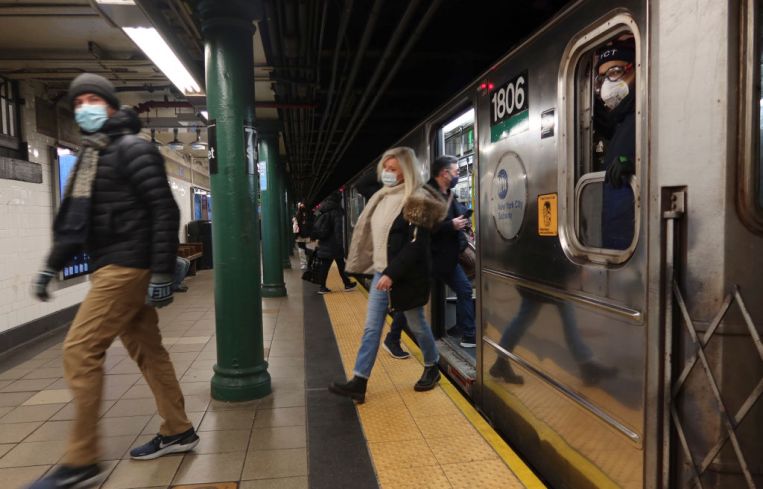20 Percent of MTA’s Capital Funding Is at Risk, Report Finds
By Rebecca Baird-Remba August 25, 2022 8:53 am
reprints
The New York City subway system needs a mind-boggling amount of repairs, but the Metropolitan Transportation Authority may not be able to access nearly $12 billion — or 20 percent — of the necessary financing to do the work, according to a new report from the Citizens Budget Commission (CBC).
The nonprofit pointed out that $11.5 billion of the MTA’s needed $60 billion in additional funding will come from long-term financing and “pay-as-you-go” bonds, but the CBC argued the agency’s significant $2.5 billion operating deficit makes it “unaffordable” for the MTA to borrow money.
The remaining $48 billion in funding — which include real estate taxes, federal funding, bridge and tunnel tolls, congestion pricing revenue and funding from governments — aren’t particularly secure either, according to the CBC.
“Absent significant changes in the fiscal fortunes of the MTA’s operating budget, it is fiscally unsound for the MTA to issue new debt whose debt service is not supportable due to the structural deficit,” CBC’s Ana Champeny and Alex Armlovich wrote in the report.
The MTA also expects to finance $15 billion in improvements with congestion pricing — which could toll drivers up to $23 in certain parts of Manhattan — but the federal government and local officials have slowed its implementation.
Congestion pricing’s delay has already cost the MTA $2 billion in foregone revenue in 2021 and 2022, and will likely make the agency miss out on another $1 billion in 2023. New Jersey politicians, as well as electeds in other parts of the tri-state area, are pushing for special exemptions for certain drivers, which could decrease the amount of money collected.
Finally, a slowing real estate market could jeopardize $500 million in MTA funding. The agency expects to collect that amount from the newly implemented “mansion tax” on property sales over $1 million, but the CBC noted that the city collected significantly less property tax revenue than expected in 2020, partially because the sales market in the five boroughs was so slow.
“While the market recovered in 2021 and revenues met expectations, rising inflation and interest rates cooling the real estate market and higher risk of a recession may restrain revenues from this economically sensitive tax,” CBC analysts wrote. “If revenues are 10 percent below pre-pandemic forecasts, available capital funding would be roughly $500 million lower.”
Overall, the MTA still has $53 billion in unfunded projects from its 2020-2024 capital plan and two prior five-year capital plans, including $7.5 billion for the Second Avenue Subway and Hurricane Sandy projects supported by federal funds. The agency has committed about $7.1 billion annually over the past six years to capital projects, according to CBC.
The nonprofit recommends the MTA implement cost-saving measures, like reducing the number of conductors on subways and commuter trains and reforming work rules for MTA employees. It also pushed for the agency to publish a clear report outlining which projects it will tackle in the next capital plan that will bring the subway up to a state of good repair.
However, an MTA spokesman argued that the report didn’t represent the current state of the agency’s finances.
“While we appreciate the CBC’s feedback, this report does not accurately portray the status of the MTA Capital Program,” MTA spokesperson Aaron Donovan said in a statement. “After an 18-month pause due to COVID-19 … the MTA has already awarded $9.5 billion in capital projects. This puts us in the range of a $50 billion pace over a normal five-year award period. Further, 75 percent of the awarded work is for projects that maintain the system in a state of good repair — evidencing the MTA’s prioritization of this type of capital investments.”
Rebecca Baird-Remba can be reached at rbairdremba@commercialobserver.com.



